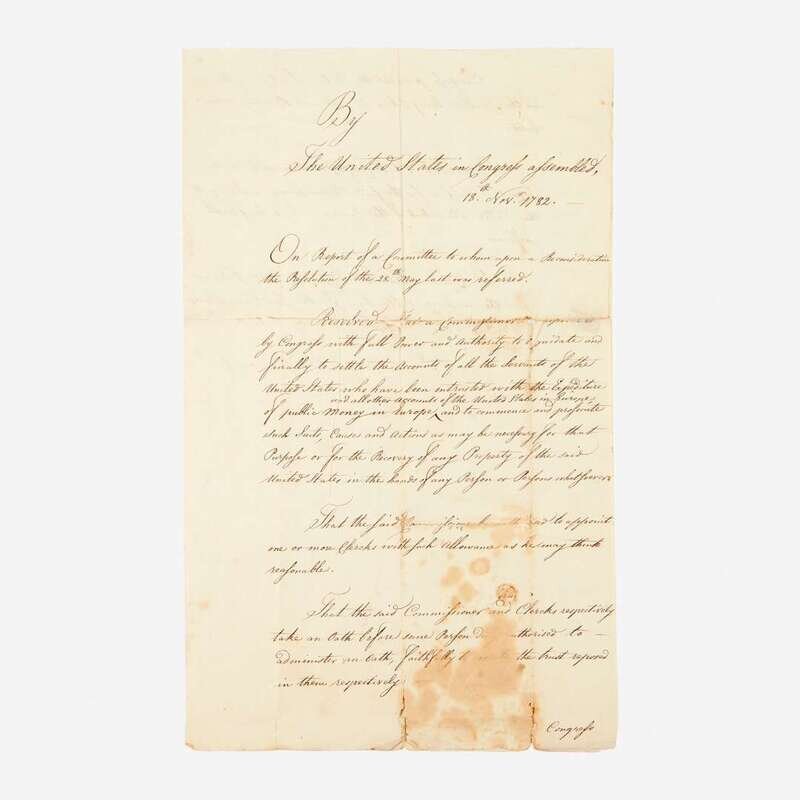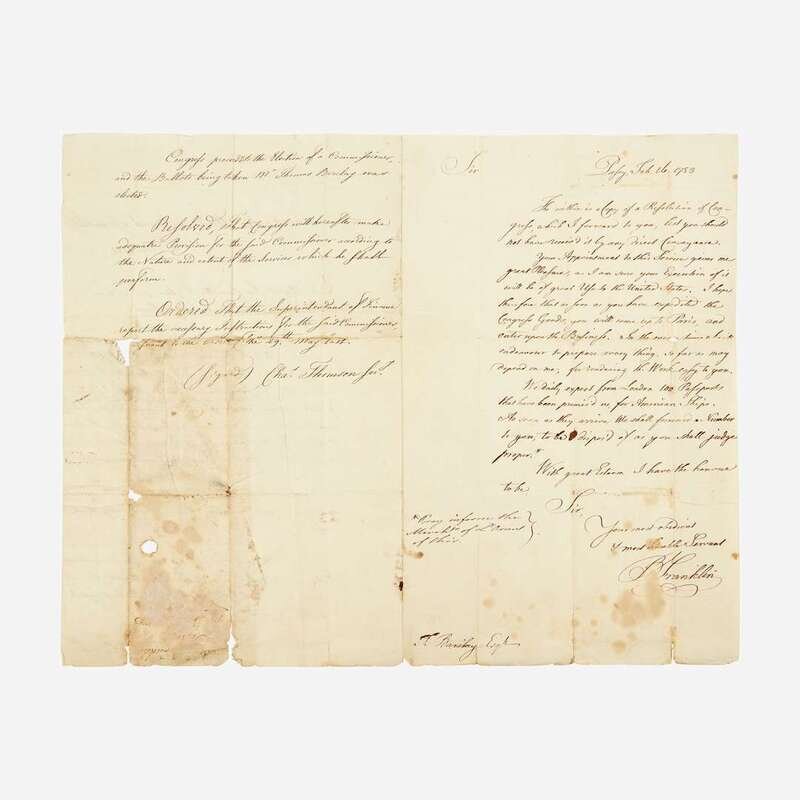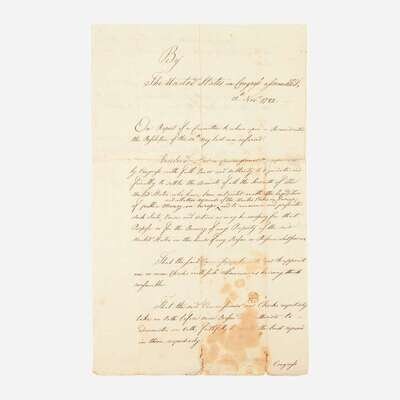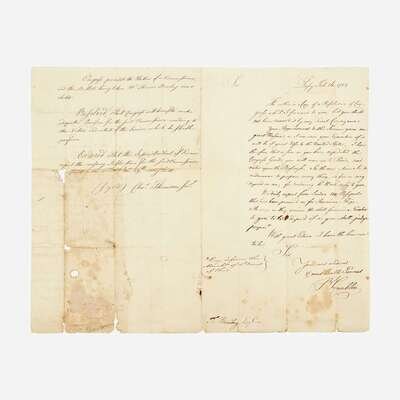Condition Report
Contact Information
Lot 4
Lot Description
Passy, (France), Feb(ruary). 16, 1783. Folio. 3 pp. Autograph letter, signed by Benjamin Franklin ("B. Franklin"), while serving as Ambassador to France, to American Consul to France, Thomas Barclay. Creasing from original folds; 6 in. horizontal separation along top fold of third page, small tape repair to recto of same; small separations and holes at other folds of third page, with losses to some words in second, third, and fourth paragraphs; staining at bottom of third page, affecting some letters, and obscuring docketing on fourth page; some scattered spotting and small separations on first page; spotting at bottom of first page partially affecting the letter "B" and the flourish of the letter "n" in signature. As the American Revolution draws to a close and peace seems near, Benjamin Franklin writes to his colleague, the American Consul to France, Thomas Barclay, to inform him of his newly appointed role as commssioner of public accounts in Europe. "Sir, The within is a Copy of a Resolution of Congress, which I forward to you, lest you should not have receiv'd it by any direct Conveyance. Your Appointment to this Service gives me great Pleasure, as I am sure your Execution of it will be of great Use to the United States. I hope therefore that as soon as you have expedited the Congress Goods, you will come up to Paris, and enter upon the Business. In the mean time I will endeavour to prepare every thing, so far as may depend on me, for rendering the Work easy to you. We daily expect from London 100 Passports that have been promis'd us, for American Ships. As soon as they arrive We shall forward a Number to you, to be dispos'd of as you shall judge proper; With great Esteem I have the honour to be, Sir, Your most obedient & most humble Servant B Franklin" Thomas Barclay (1728-93) was appointed America's first consul to France on October 5, 1781. Upon arrival, he worked closely with Benjamin Franklin (1706-90) and his grandson, William Temple Franklin (1760-1823), arranging shipments of much needed supplies such as uniforms and blankets for George Washington's troops in America. As the war neared its end and peace lingered on the horizon, the need to account for public money spent across Europe to sustain the war effort grew especially urgent. On November 18, 1782 Congress appointed Barclay commissioner of public accounts in Europe, with the express purpose "to liquidate and finally to settle the accounts of all the servants of the United States, who have been entrusted with the expenditure of public money in Europe, and all other accounts of the United States in Europe, and to commence and prosecute such suits, causes, and actions, as may be necessary for that purpose, or for the recovery of any property of the said United States, in the hands of any person or persons whatsoever." The job proved burdensome, not only because of shoddy bookkeeping and scattered financial records, but also because of Barclay's poor health. "The task confronting Barclay and his audit team was to meet the need John Adams had perceived five years earlier when he observed that 'prodigous' sums were being spent but he could find no books of account showing what was being received for those sums." (p. 123, Roberts, Thomas Barclay, 2008). A rare and important letter written entirely in Benjamin Franklin's own hand. Franklin's letter appears in its entirety on page 174 in "The Papers of Benjamin Franklin, Vol. 39, January 21 through May 15, 1783" (Yale University Press, 2008).



